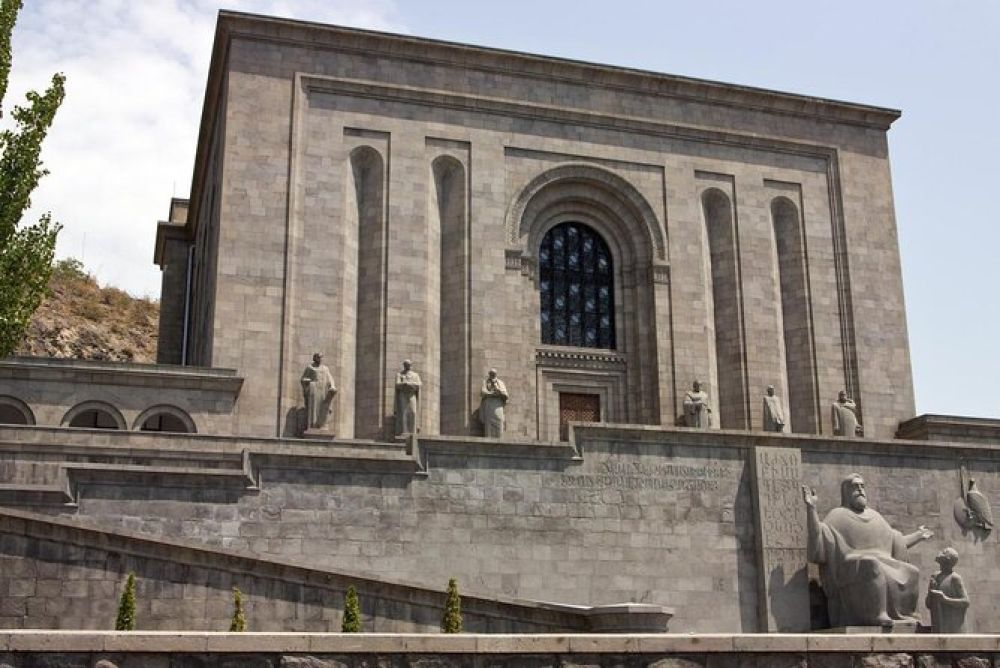

The Matenadaran in Yerevan, the capital of Armenia, is one of the oldest and richest book-depositories in the world. Its history of tourism dates back to its establishment as a repository of ancient manuscripts, which has made it a hub for scholars, historians, and tourists alike. Named after Saint Mesrop Mashtots, the inventor of the Armenian alphabet, this institution is both a museum and a research center dedicated to the preservation and study of ancient texts.
The roots of the Matenadaran's collection can be traced back to ancient times. However, the establishment of the institute in its current form took place in 1959. Prior to this, the manuscripts were kept in the Armenian Church repository of ancient manuscripts at Etchmiadzin. With the growing collection, there was a need for a dedicated space to house these treasures, leading to the establishment of the Matenadaran in the heart of Yerevan.
Tourists visiting the Matenadaran are greeted by a grand statue of Mesrop Mashtots and his pupil, Koryun. The museum houses a vast collection of more than 17,000 manuscripts and around 300,000 archival documents, spanning a wide range of subjects including theology, philosophy, history, medicine, literature, art history, and cosmography, most of which are in Armenian, but there are also significant works in other languages.
In recent years, the Matenadaran has increased its accessibility for an international audience, with multilingual guides and signs, making it a popular destination for tourists from all over the world. It is not only a monument to Armenia's intellectual history but also a testimony to the resilience of Armenian culture. The institute's digitalization efforts have played a crucial role in its growing popularity, allowing for online access to some of its collections and virtual tours.
The institution plays a significant role in Armenia's cultural tourism, drawing visitors who are keen to explore the rich history and heritage of this ancient civilization. As travel trends shift towards experiential and educational tours, places like the Matenadaran become essential stops for culturally curious travelers.
With the increasing interest in cultural and heritage tourism, the Matenadaran is expected to remain a key attraction in Yerevan. Future plans for expanding exhibits and providing even more interactive experiences are anticipated to strengthen the appeal of the Matenadaran among tourists. As Armenia continues to open its doors to the world, the Matenadaran will likely serve as a bridge connecting the past to the present, inviting visitors to embark on a journey through the extensive annals of Armenian scholarship.